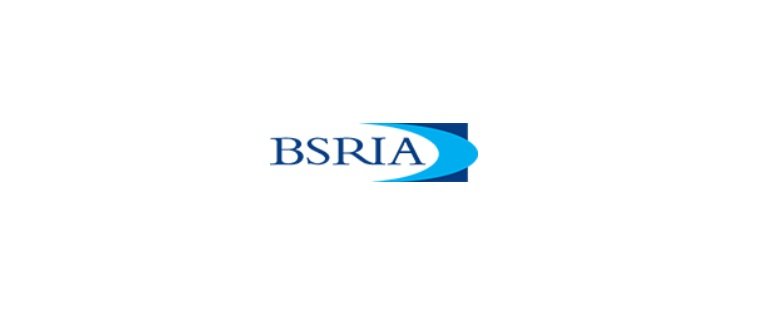The global AC market has been growing continually over the last decade, posting a healthy compound annual growth of some 7%.
2023 has followed the trend and the global sales of all AC units increased 5% from 2022 in value terms. Residential air conditioning market has grown by 9.4%, while the commercial AC market posted growth of 4.6%.
While the surge in production and logistic costs slowed down in 2023, the requirements for more efficient products supported growth of the market in value terms.
The demand kept increasing in most regions, however sales patterns varied greatly between regions and countries.
The pace of prescribing phase-out of conventional refrigerants differs among countries, the structure of the markets is different and while overall economic situation is relatively gloomy across the globe, some countries have seen specific supportive measures impacting sales in a positive way.
The fastest market progression has been recorded in the Middle East.
Saudi Arabia has implemented some of the most rigorous energy-saving standards to address the region’s rapidly growing electricity demand.
And in the UAE the regulatory bodies such as the Abu Dhabi Quality and Conformity Council (QCC) are actively shaping standards to ensure environmental sustainability and consumer safety. In August 2023, the QCC introduced the ‘’Specific Requirements for Certification of Ozone- Friendly Air-cooled Unitary Air Conditioners (QCC-RQ25-02)’’, and new Energy Efficiency Ratio (EER) regulations which have been reshaping the UAE AC market since.
The US has also seen positive market environment, particularly in the commercial segment, which outperformed expectations buoyed by investments in manufacturing, data centres, life sciences and hospitality sectors.
Brazil and Mexico are representing two bright spots in Latin America.
Brazil’s AC market surpassed expectations in 2023, driven by robust economic growth, declining inflation and interest rates. Investments in healthcare, data centres and industry sustained demand.
In Mexico, the AC market has seen notable growth supported by booming tourism, foreign investment, and moderate public spending ahead of the 2024 presidential elections.
Europe overall has experienced a positive development in AC market in 2023, recording over 6% growth on 2022, despite challenges due to economic strains and sluggish construction activity.
After months of uncertainty, the recently agreed revision for F Gas proposal document, which has passed its first EU parliamentary vote in January 2024, confirms that the next big quota step down, originally scheduled for 1 January 2024 has now been put back to 1 January 2025.
Asia represents the biggest share by far of the global AC market. The overall Asian market has posted a healthy double-digit growth in 2023 supported by several positive developments in different countries.
China market witnessed volume growth supported by the transition from R410A to R32 refrigerant accelerated in 2023. Economic downturns affected several commercial projects, but government support for high-tech industries sustained sales, particularly in process applications.
The Building Energy Code mandating energy conservation measures promoted smart AC systems in both Vietnam and Thailand. In Thailand, increased demand for inverter AC products has also been driven by rising energy prices. The government’s regulation aligning with the Kigali amendment to the Montreal Protocol, are supporting the transition towards environmentally friendly refrigerants.
The Indonesian AC market continued its growth trajectory, with higher sales across various segments. Import restrictions in the high-wall split market drove domestic production. Economic growth fuelled demand in commercial sectors like hospitals, universities and data centres.
India’s AC market is a buoyant market, supported by population growth, urbanisation and government incentives for domestic production. Energy-efficient solutions and regulatory initiatives aim to align with global sustainability goals. The shift away from HCFCs and increasing demand for air-cooled chillers reflect overall market trends.
For more information contact BSRIA WMI
18 April 2024
BSRIA: World Air Conditioning Market Insights 2023
Related news
BSRIA Highlights HVAC Market Shifts in 2024 Report
BSRIA report outlines global HVAC trends shaped by regulation, demand, and innovation.
BSRIA has published its 2024 World Air Conditioning report, offering a detailed outlook based on su...
19 May 2025
Embraco expands into HVAC market with scroll compressor acquisition
Nidec Global Appliance has announced the expansion of its Embraco brand into the heating and air conditioning (HVAC) market through the acquisition of scroll compressor manufacturer Xecom. Th...
09 Jul 2025
LG targets global HVAC leadership with data center and regional B2B...
LG Electronics has outlined its strategy to become a top-tier global provider of heating, ventilation and air conditioning (HVAC) solutions by 2030. At a press conference held on July 8 at LG Scien...
yesterday
Air Conditioners Market to Hit $276.7 Billion by 2032
The global air conditioners market is projected to reach $276.7 billion by 2032, growing at a CAGR of 6.1% from 2025, according to a report by Meticulous Research. The expansion is driven by ri...
09 Jun 2025
IIR launches “Women in Cooling” database with global survey insights
The International Institute of Refrigeration (IIR) has launched the “Women in Cooling” database, an interactive platform presenting career stories and survey data from women in the refrigeration, a...
27 May 2025
ABRAVA publishes May 2025 AVACR Economic Bulletin
The Department of Economics and Statistics of ABRAVA has released the May 2025 edition of its "Termômetro AVACR" economic bulletin, authored by economist Guilherme R.C. Moreira. The document presen...
27 May 2025

